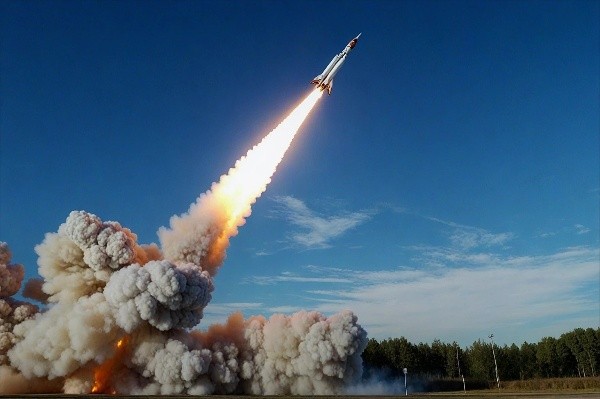Iran’s Plan to Strike Back Against the U.S.
Iran’s Military Preparations Following U.S. Attacks
Loading...

Warning comes as President Vladimir Putin lowers threshold for using Russia nuclear arsenal in move decried as ‘irresponsible’ by the West.
Escalation of Tensions
In a significant escalation of the ongoing conflict, Russia has declared that Ukraine's recent use of long-range ATACMS missiles against its territory marks a “new phase of the Western war” against Moscow. This warning comes in the wake of Ukraine targeting a military facility in Russia's Bryansk region, a move that has raised alarms in the Kremlin. The attack occurred shortly after the United States authorized Ukraine to utilize these advanced weapons against Russian targets, intensifying the already fraught situation between the two nations.
Ukraine's Missile Strike
According to Russian officials, Ukraine launched six ATACMS missiles at the Bryansk region, with air defense systems reportedly intercepting five of them. Russian Foreign Minister Sergey Lavrov characterized the missile strike as a clear signal of Ukraine's intent to escalate the conflict. He emphasized that Russia would respond “accordingly,” accusing the United States of directly assisting Ukraine in operating these missiles. Lavrov's comments reflect a broader narrative from Moscow, which has long claimed that the ATACMS system requires guidance from U.S. satellites and programming by American specialists.
New Nuclear Doctrine
In a related development, President Vladimir Putin has formally lowered the threshold for the use of Russia's nuclear arsenal. This revised nuclear doctrine allows for a potential nuclear response to conventional attacks, particularly those perceived as threats to Russia's sovereignty or that of its ally, Belarus. Lavrov urged Western nations to fully comprehend the implications of this new doctrine, which he believes underscores Russia's readiness to escalate its military response if provoked.
The updated nuclear doctrine was approved by Putin on the same day as the missile strike, indicating a strategic shift in Russia's military posture. The decree outlines conditions under which nuclear weapons could be deployed, broadening the circumstances that could justify such an extreme measure. This move has been interpreted as a tactic to deter Western support for Ukraine and to signal Moscow's willingness to escalate the conflict if necessary.
International Reactions
The international community has reacted strongly to Russia's new nuclear stance. The White House expressed that it was not surprised by the announcement, noting that Russia had been signaling its intent to revise its nuclear doctrine for some time. U.S. officials have stated that there will be no changes to America's own nuclear posture in response to Russia's actions.
European Union foreign policy chief Josep Borrell condemned Russia's nuclear threats as “completely irresponsible,” highlighting the dangers of such rhetoric in an already volatile situation. British Prime Minister Keir Starmer echoed these sentiments, labeling the revised nuclear doctrine as another example of the “irresponsibility” of the Russian government. He criticized Russia for escalating the conflict and suggested that the solution lies in de-escalation rather than further military aggression.
Conclusion
As the conflict in Ukraine approaches its 1,000th day, the stakes continue to rise. The use of ATACMS missiles by Ukraine and the subsequent Russian response signal a potential turning point in the war. With both sides ramping up their military capabilities and rhetoric, the risk of further escalation, including the potential use of nuclear weapons, looms large. The international community remains watchful, urging restraint and dialogue to prevent a catastrophic escalation in hostilities.
Editor
Iran’s Military Preparations Following U.S. Attacks
Troops remain in five strategic locations, raising fears of renewed tensions and long-term occupation.
Opposition forces have taken control of the capital after a significant offensive. Here is how it unravelled.
